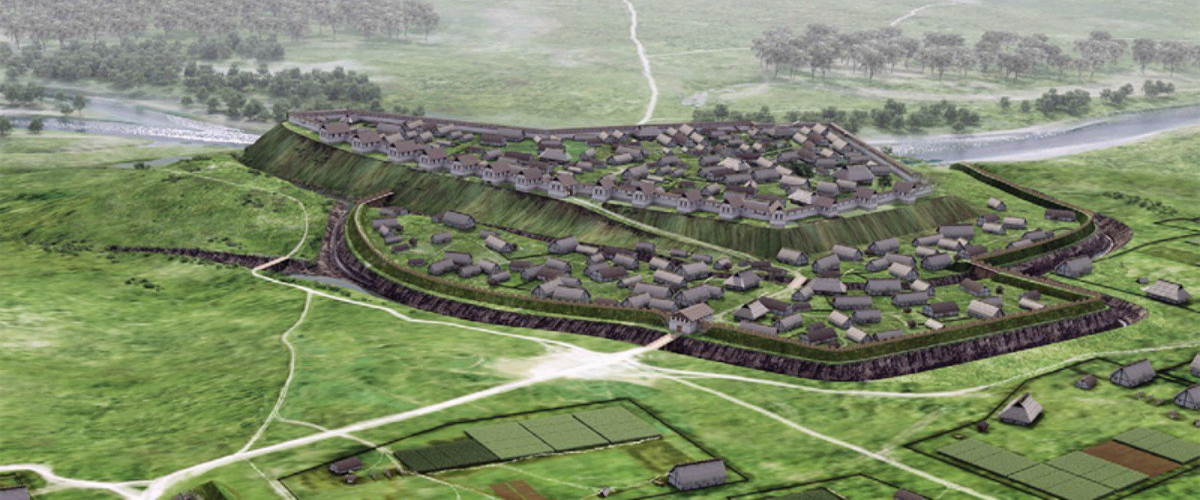Many people have left the Church. The numbers are staggering. And the rest of the culture has never set foot in a church and wants nothing to do with it. How can the church bring an end to the mass exodus? How do we reach the people who have left, let alone those who have always been on the outside—by their choice? There is no easy answer.
I interviewed roughly 20 people (and the number is growing) to get their thoughts on why people have left the Church, and what we need to do differently , especially if the plan is to establish a new church body (and it is). Through these interviews and and other research, I have discovered some changes need to occur. How do Christ's people become God’s agents of restoration and salvation—especially to people who have left the Church? The answer is not easily accomplished: We will have to do church differently.
 We beseech you, Lord... Restore the wanderers of your people. Feed the hungry. Raise up the sick. Comfort the faint-hearted.
We beseech you, Lord... Restore the wanderers of your people. Feed the hungry. Raise up the sick. Comfort the faint-hearted.
—St Clement of Rome | Circa A.D. 101
When it comes to doing church, especially in creating a body, we will have two core, overarching principles. First, build by the Spirit. I'm sure you're familiar with the verse: "Unless the Lord builds the house, those who build it labor in vain" (Psalm 127:1). Second, build by relationships. We will need to strengthen the ties that bind. I have asked several people, “How do I go about starting a church? What should I do?” And repeatedly the answer has come: It's about the relationships.
In addition to the two guiding principles above, we will implement the following ten values and practices in the hope of providing a hospitable environment for those who have left Christ’s Church and for those who have yet to engage.
Welcome All
Make sure all feel welcome and are given the opportunity to belong. In this age when people want classify themselves according to what may be outside the mainstream, we want to show love and acceptance. This is especially true in matters of sexuality. We don’t want to directly or indirectly exclude anyone of any persuasion or background or status. If we give people a place to belong, they may in time come to believe, including a new belief regarding their "classification." To put it differently, they belong in order to believe; not believe before they can belong.
See The Good
We need to see the world not simply as broken but as good, and not simply good, but potentially wondrous. Negativity and despair pervade our fallen world, and people are looking for something positive. They have grown weary of hearing, "All is lost." People want to know that our problems are not insurmountable, but can be overcome—by you, me, and we. We offer a positive vision of hope for a world and people made new.
Show Authenticity
We will support, practice, and encourage authenticity—being who you are instead of pretending to be someone different or that everything is fine (when it is not). Many people today have a sort of “authenticity radar” and are turned off by people who pretend. Doing and saying things to be hip, cool, or relateable when those things don't fit who you are, tends to have the opposite effect.
space
 When you are before the altar where Christ sits in power, you ought no longer to think that you are among men; but believe that there are legions of angels and archangels standing by you, and trembling with respect before the sovereign Master of Heaven and Earth.
When you are before the altar where Christ sits in power, you ought no longer to think that you are among men; but believe that there are legions of angels and archangels standing by you, and trembling with respect before the sovereign Master of Heaven and Earth.
space
—St. John Chrysostom | Archbishop of Constantinople | Circa 347-407Experience The Sacred
Focus on the experience of the Divine and the sacred on Sunday and encourage it throughout the week, which is the opposite of seeker sensitive or entertainment oriented. This includes the use of symbols and liturgy with some explanation as to what they are and what they mean, as well as, seeing the church as a community to “go from” rather than a place to “go to.”
Engage The Senses
Similar to the item above, we want to employ all the senses during a service or liturgy—site, sound, touch, taste, and smell. By engaging these five we will awaken people to a sixth sense, which does not refer to seeing dead people, but to becoming aware and attuned to the presence of God. By engaging all the senses, our hope is people will come to experience God and his presence in the service (and in their daily routine).
Demonstrate Passion and Emotion
We will willingly show emotion and connect with others emotionally. If we are not excited about what we are saying and doing others will not be either. It's not necessary to "jump up and down," but we need to be genuinely excited in communication and interaction. One of the main vehicles to accomplish this would be story—a great way to engage people in today's' culture.
Feed People Spiritually
We need to offer both depth and relatability in content and communication—offering a fresh perspective, innovative information, or a new challenge. Some churches lack depth, while for other churches; the material may be “over the head.” We need to offer insight, but also show how biblical material connects with peoples lives and the real world. Central to feeding people is a message of grace, hospitality, and purpose.
Put Politics Aside
Make the kingdom of God the focus instead of the conservative or liberal politics that drive many congregations. In other words, we intend to be "Christian Americans" and not "American Christians," where the emphasis is on the first word (e.g., African American). In other words, we are not firstly Americans; we are firstly Christians. In the current climate when people are politically divided, perhaps more so than since the 1960s, we don't want to use the church's pulpit or influence to promote a particular political view or agenda. Rather, we advance the views and practices of God's kingdom and seek "common ground," contrary to defending one pole or the other.
Become Kingdom Active
We will be active environmentally, socially, and communally; but this is not the same as being politically active. Instead, it means being kingdom active. We will put politics aside and ask: What are kingdom beliefs and practices, and what can we do together to make a difference? Between the poles, the left or the right, is the whole. If we can see the whole picture, we can probably find something we can do together.
Discover Their Destiny
We will help people see who they are and how their destiny intersects with the grand story of God (the restoration of all things). Sadly, many feel their passions have been squashed or that they exist solely to pay bills and die. Unfortunately, when it comes to church, many get put into roles or functions having nothing to do with their gifts or calling. They're just filling the church's programs. It need not be this way. We can show them, to borrow from the book of Esther, how they “were created for such a time as this” (Esther 4:14).
Questions for Thought:
Please let me know your thoughts in the comments.
- What do you think of the ten values or principles above? Do any of the principles resonate with you and why?
- What about the two overarching principles? Would you agree? How would you go about them?
- What other simple steps can we take to approach church in a way that is appealing to those who have left the church or the culture at large?
We are a community (not limited by geography) with a common interest in Celtic Christianity and spirituality. If you share in this interest or are at least curious, you can find out more through our newsletter. Simply enter your info below for immediate access to all things Celtic! You can unsubscribe anytime, and your information will never, ever be shared.
We Invite You To Journey With Us

John D. Hunt
John is an author, teacher, and movie buff. He firmly believes God’s reign can transform your life and destiny, not in the “bye and bye” but here and now. John is currently creating an initiative that embodies the charism of St. Brendan, the Celtic saint of travelers and the spiritual journey.
See John’s Books or Posts here or there.

